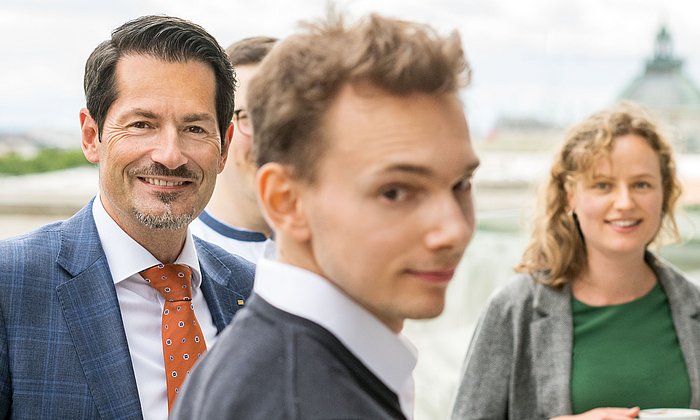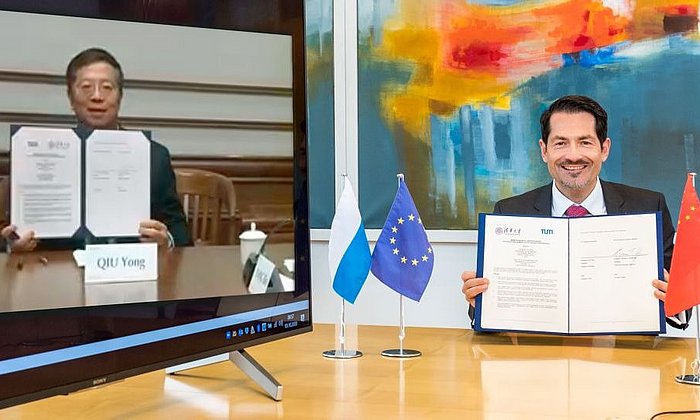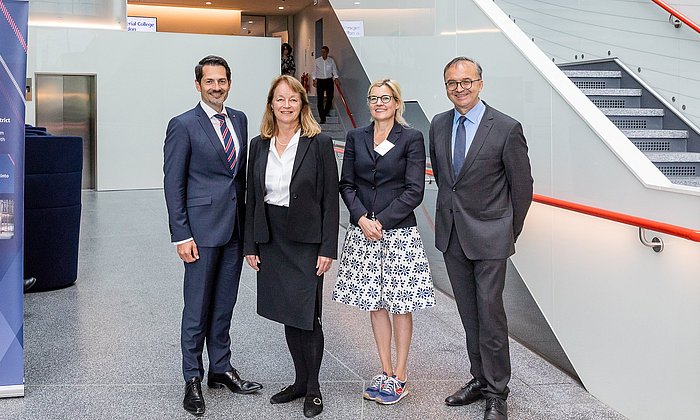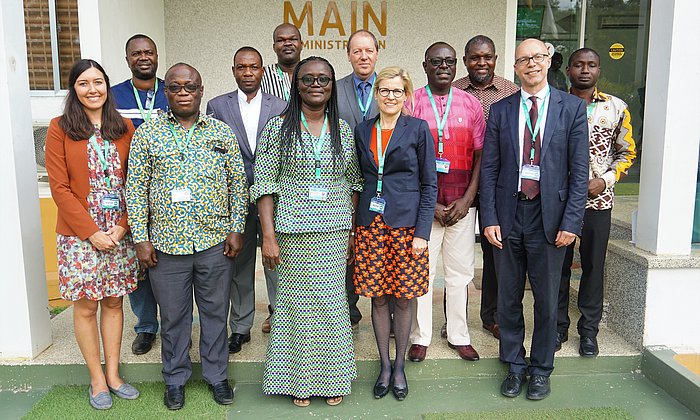An interview with Senior Vice President Prof. Juliane Winkelmann
“Science thrives on connections to the world”
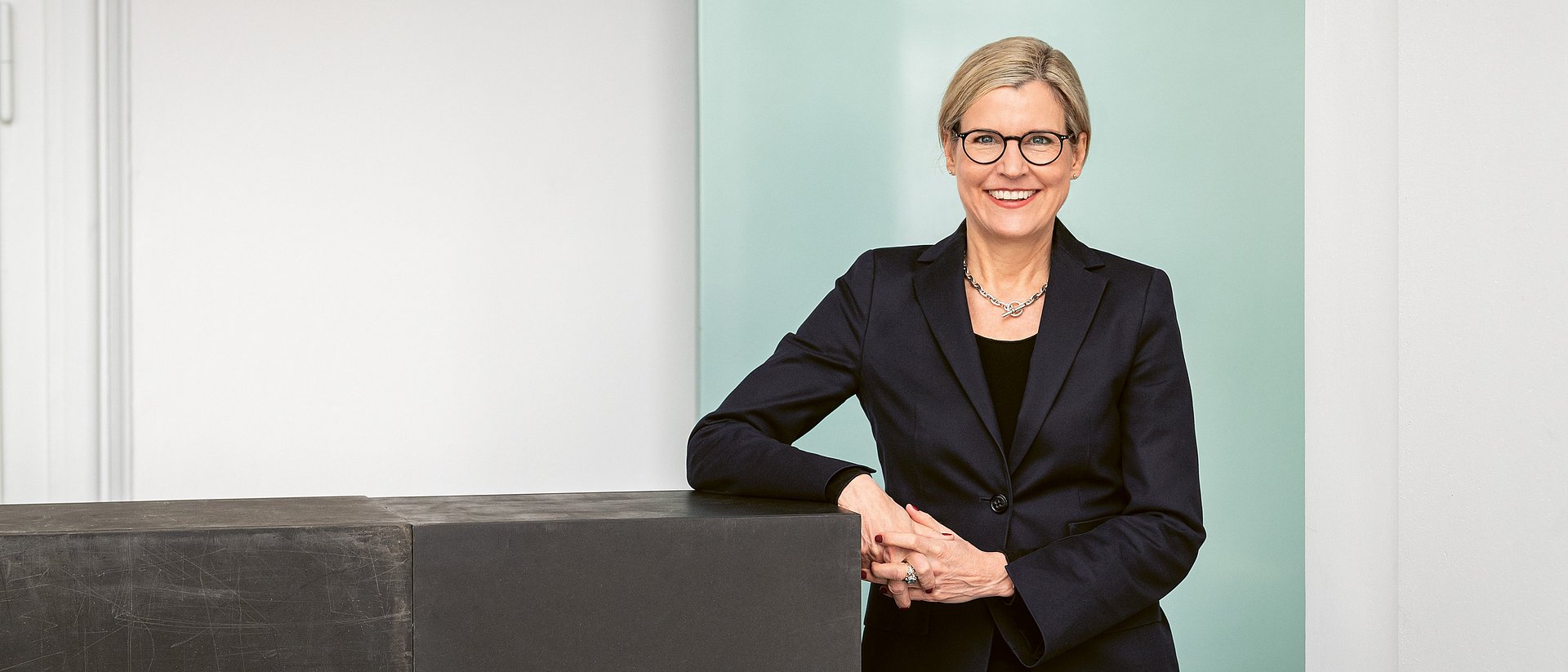
Professor Winkelmann, you have been the Senior Vice President for International Alliances and Alumni for five years now. What does this work involve?
International cooperation is an exciting and sometimes tense balancing act across cultures, contexts and perspectives with the goal of achieving progress for all concerned. For me it is a huge pleasure to initiate, support and moderate these processes and guide them to a successful conclusion.
What partners can be involved?
TUM is linked to hundreds of universities worldwide through the activities of its schools, departments and research chairs, for example. Through the Erasmus+ program alone we have more than 300 partner institutions in Europe. We also cooperate closely with strategic partners and alliances in certain areas – first and foremost as a founding member of EuroTech, one of Europe’s most powerful alliances. With our EuroTech network, we are also engaged in an important program: EuroTeQ. Here we are developing the European engineering education of the future.
Why is Europe so important to us?
Europe is our immediate ecosystem. First, we have a strong academic interest in it. Second, we have a political mission, so to speak, to help improve cooperation at the European level. An important aspect of this is the Erasmus program, which makes a vital contribution to a stable, peaceful and prosperous Europe. The war in Ukraine is a sobering reminder that peace in Europe cannot be taken for granted.
TUM also has many partnerships outside Europe.
Science thrives on connections to the world. In global competition, we focus on partners with whom we wish to develop and grow as an institution – for example through our flagship partnerships with Imperial College London, Tsinghua University in China, especially at the Shenzhen location, and the University of Queensland in Brisbane, Australia. With those three universities we have an intensive institutionalized partnership that ultimately involves all levels of the university: research, education and entrepreneurship. But we also work closely with other international universities in certain areas – for example with Peking University in the field of cancer research. Or in the area of Industry 4.0 in the German-French Academy for Future Industry, which we established jointly with the French Institut Mines-Télécom. We also have partnerships with the São Paulo State University (UNESP), the Indian Institutes of Technology in Mumbai and Kharagpur and Kwame Nkrumah University of Science and Technology (KNUST) in Ghana. We want to achieve important results with our international partners and have a strong impact – both in science and research and on society as a whole.
Brazil, India, Ghana – what makes the Global South so interesting for cooperative ventures?
I do not think that a university can compete successfully in today’s world without cooperative relationships with the Global South. Cooperation with Africa presents enormous potential for both sides. And in the future, we will be able to overcome many of the biggest global challenges only by working together with this enormous continent. The figures tell a clear story: half of the fastest-growing economies are in Africa, including Ghana. Projections show that Africa will be home to a quarter of the world’s population under the age of 25 by 2030. And by the end of this century, all of the world’s biggest cities will be in Africa. Consequently, our partnership agreement signed with KNUST is very important to us – and we have strengthened our cooperation immensely since 2018.
Are specific projects already underway?
We now have more than 15 joint projects. We are also addressing the challenges of the Global South with our TUM SEED Center. This project, which is funded by the DAAD, is bringing together new technical possibilities for energy production with entrepreneurial activities. It studies the development of local entrepreneurship and thus the life of entire villages when solar panels make electric power available for the first time. Along with research projects like these, we also want to create concepts to cooperate in education between our university and KNUST.
In addition to the university partnerships, TUM has its own offices around the world. What is the idea behind these liaison offices?
We have locations in key regions: Brussels, Singapore, Beijing, Mumbai, San Francisco and São Paulo – to initiate a two-way process: We invite the world’s best talents from those locations to TUM and have an onsite presence to maintain and expand our network. Our liaison offices boost the worldwide visibility of the TUM brand while supporting our scientists and their research projects at the local level. The liaison officers mediate between cultures and help researchers to overcome hurdles in international cooperation. Sometimes it can make a difference to be present onsite – when organizing events, for example. And there are some things that we simply cannot do from Munich. For example, we can only manage our Weibo account from China – and it has the most followers of all social media accounts of German universities in China.
Along with the liaison offices, with the launch of the Singapore campus 20 years ago, TUM became the first German university to open a foreign location. What was the goal?
With the establishment of TUM Asia in 2002, TUM made a strong commitment to cooperation with Asian universities. Because: Asia, and above all China – despite the controversies – has been an important geopolitical cooperation partner for years. It is also among the top players in the academic league tables. Another priority for us is to enable our researchers to navigate complex geopolitical contexts with Chinese partners.
38 percent of students and 25 percent of researchers at TUM come from abroad. What makes TUM so attractive?
First, we have our excellent reputation, as reflected in international league tables such as the Global Employability Ranking, where we frequently place among the leaders. We also have an extensive range of English-language degree programs and offer excellent career opportunities. Munich is extremely appealing to foreign students and researchers, too: along with a second-place ranking for livability in the 2022 QS Best University Cities list, the city has a strong regional economy and a first-class startup ecosystem.
Do TUM students embrace mobility in the same way when it comes to gaining experience abroad?
Definitely! We are Germany’s top performers in the Erasmus+ program. But our students also make extensive use of the many other mobility programs we offer, such as TUMexchange and the short-term ATHENS program. In addition, we support ‘free movers’, i.e. students who organize their own stay abroad. But for students who do not opt to study abroad – or are unable to do so – TUM offers many options for adding an international dimension to the university experience and gaining relevant skills. These range from language courses to tutoring programs like TUMi e.V. With EuroTeQ we have launched a virtual format to allow structured participation in online courses offered by our EuroTeQ partners.
And how about those who want to do research abroad?
Ph.D. students planning a stay abroad can apply for financial support from the TUM Graduate School. And under EuroTech there are agreements with other universities that define a framework for joint doctoral studies. We have also developed Ph.D. programs with our flagship partners, such as the bilateral Joint Academy for Doctoral Studies created with Imperial College London.
So many exchanges, formats and cooperative activities. Does this cause a lot of administrative challenges?
We have made a conscious decision to prioritize continuing education for our staff. Our internationalization is a shared task that applies to all members of our university community. The long-term success of our internationalization will require a university administration with an international mindset. For that reason, we offer many learning formats to our research support staff: for example, the TUM Horizons courses and the language center or the Erasmus Staff Mobility Program. Administrative personnel can take part in the Maximilian Graf Montgelas Program, which we offer with the help of funding under the German Excellence Strategy. They can visit our international partner universities to learn about their administration, how they are structured and how research works there.
TUM has more than 82,000 alumni, with many of them living and working all over the world. How important are they to the university?
Our alumni network represents an enormous potential, which we also build and maintain in support of our internationalization efforts. The international alumni actively support TUM in many different ways, for example in the mentorship program. At present, 80 high-ranking alumni are acting as TUM Ambassadors – in other words as networking multipliers for TUM.
What do you regard as the most important steps taken by TUM en route to today’s level of internationalization?
TUM’s internationalization was and is still driven primarily by the German Excellence Initiative and the Excellence Strategy of the federal and state governments, in which TUM has so far been successful in all three funding rounds. The core objective of the Excellence Initiative was to establish internationally competitive universities in Germany. This has made it possible for us to implement important measures such as the tenure track system and TUM-IAS, which enables us to attract leading international researchers. Funding under the Excellence Initiative has helped us to set up our liaison offices and expand our international network and launch programs for visiting professors and today’s numerous international cooperation projects. Our excellence clusters have also greatly boosted the international visibility of our research.
Where are we headed now?
Going forward, we expect the internationalization process to continue. So I think that, ultimately, it will become a routine facet of our work that no longer needs to be treated as an activity in itself. Even today the international aspect of our work is already taken for granted as part of our institution in many areas. However, we will soon see a lot of activity in connection with digitalized internationalization in the form of virtual mobility and online courses. But the internationalization process at TUM will never be complete. We must always be prepared to adapt to new possibilities and changing conditions – and we will never stop developing.
Prof. Juliane Winkelmann studied medicine at the Semmelweis University in Budapest and at Ludwig- Maximilians-Universität München. She conducted her doctoral research at the Max Planck Institute for Psychiatry. She was appointed to head the Chair for Neurogenetics at TUM in 2015. Before that she was a full professor of Neurology and Neuroscience at Stanford University in California. Since 2017 she has served as the Senior Vice President for International Alliances and Alumni at TUM.
Technical University of Munich
Corporate Communications Center
- Lisa Pietrzyk
- lisa.pietrzyk@tum.de
- presse@tum.de
- Teamwebsite
![[Translate to en:] Delegationsbesuch in Kumasi A visiting delegation with TUM Vice President Prof. Juliane Winkelmann (center) at the construction site for the College of Art & Built Environment at Kwame Nkrumah University of Science and Technology (KNUST) in Ghana in 2018.](/fileadmin/_processed_/b/9/csm_220516_OM_INterview_Winkelmann_Kumasi_82ff5459c3.jpg)
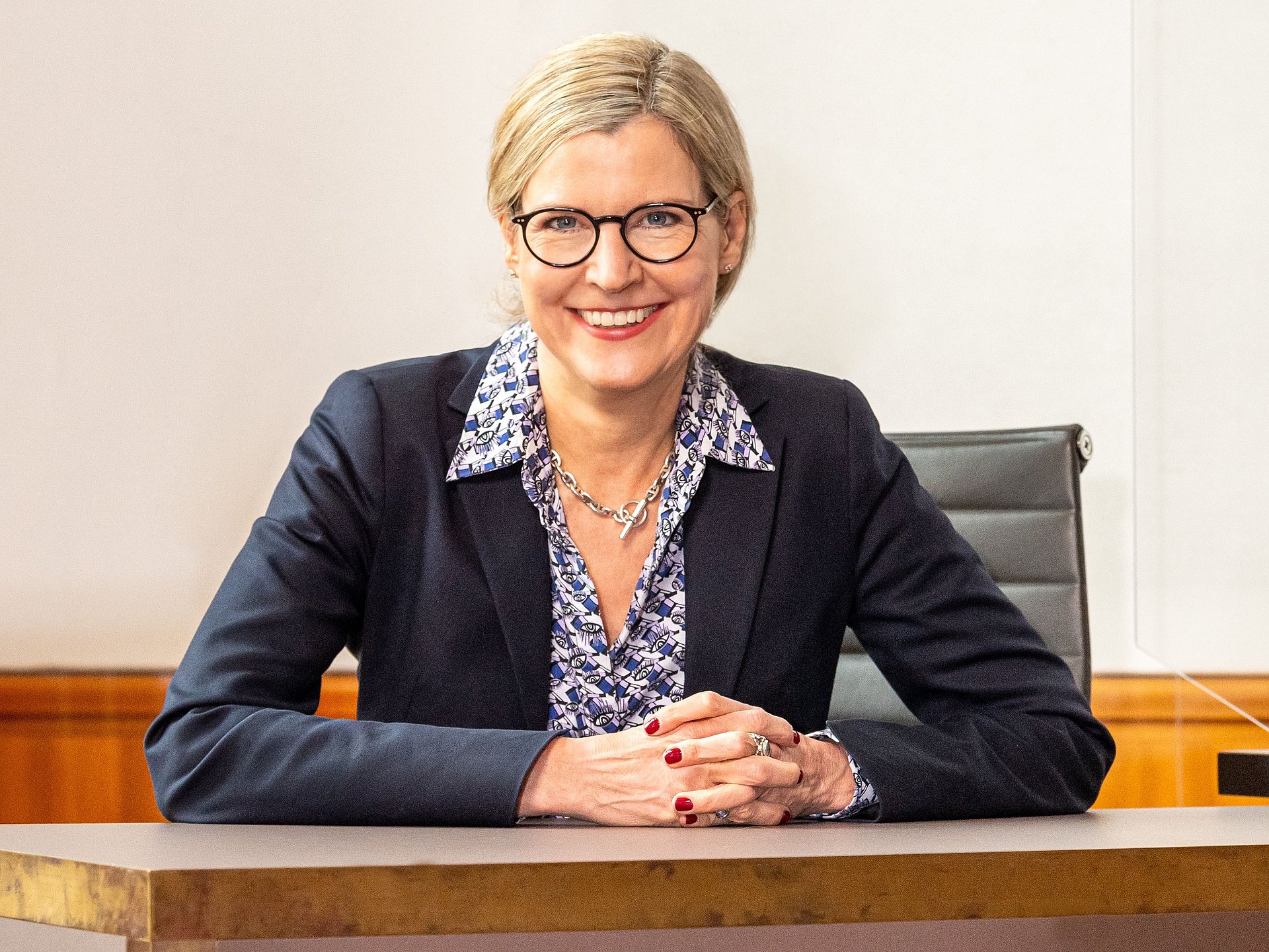
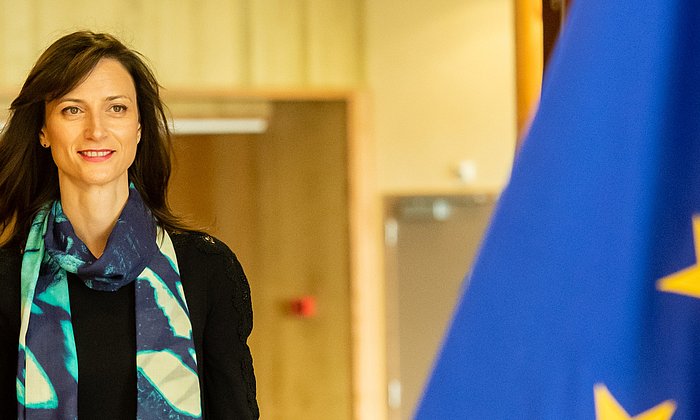
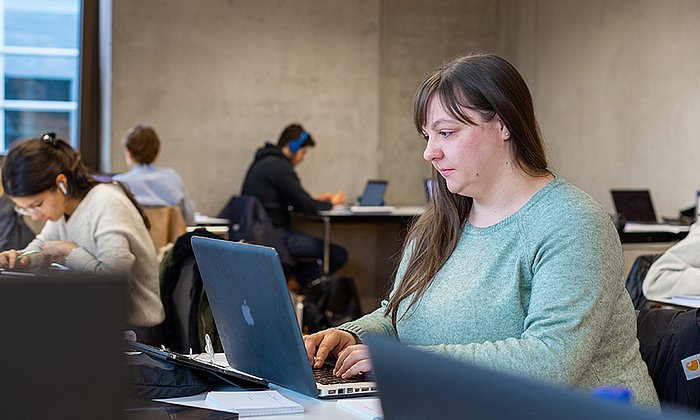
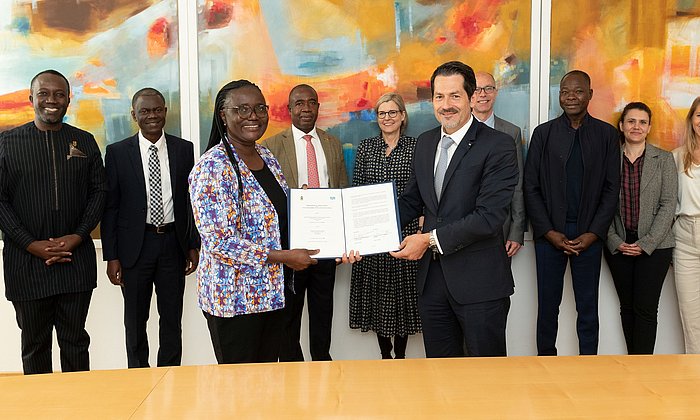
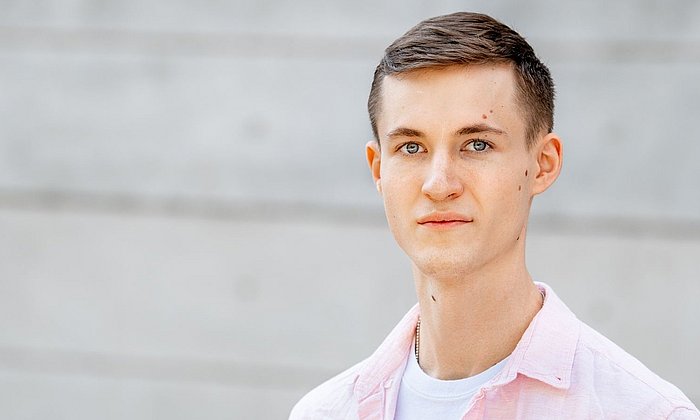
![Deborah Terry, Praes Hoffmann [Translate to en:]](/fileadmin/_processed_/a/5/csm_20210419_TUM_UQ_Flagship_Partnership_AE_16x9_Mont79_fe41c8abd1.jpg)
